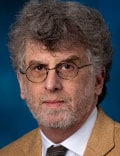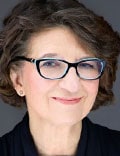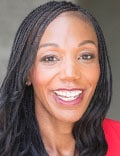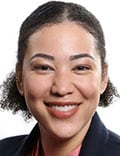Years ago, during medical school at the University of Missouri-Kansas City, Robert M. Arnold, MD, learned to call patients “Mr” or “Ms” followed by their last names.
However, recently, Arnold, now 67 years old, noticed his colleagues from Generation Z asking patients to call them by their first names.

Gen Z clinicians, born between the mid-1990s and early 2010s, “are more self-revelatory than I was trained to be or am comfortable being as a clinician,” said Arnold, vice chair for professional development at the Brookdale Department of Geriatrics and Palliative Medicine at Mount Sinai Health System in New York City.
Arnold has no plans to start calling patients by their first names. But, inspired by these young colleagues, he has tweaked how he communicates. For most of his career, Arnold never shared personal information with patients. If he was asked where he had gone on vacation, he would deflect. Now he answers the question.
“I learned if I am asking patients an enormous amount of questions, many personal, there is some fairness in my being willing to share some personal things about myself too. You don’t need to speak like a Gen Z-er to find conversational ground,” he said.
Across platforms like TikTok and Instagram, Gen Z patients say clinicians of their same generation make them feel more understood and respected than older clinicians had previously. Recent reports show these young people are less likely to have a regular primary care clinician, to only seek care when they have an acute need, and to be less loyal to one physician than previous generations.
Older clinicians may want to adjust their communication styles not only to better engage with young patients but also to build continuity of care.
“There have been a few times when older colleagues asked how I get such strong engagement from younger patients; I usually encourage them to listen more than they talk and not to assume that formality equals authority,” said Chris Hong, DO, a 33-year-old family and sports medicine physician in New York City with 1.6 million followers on the social media platform TikTok. He requested that Medscape Medical News not publish the name of his practice because of privacy reasons. “Patients, especially Gen Z, want to feel you are with them, not above them.”

For clinicians trained in medical school to project authority, informality might seem strange, said Linda MacCracken, MBA, an adjunct lecturer at the Harvard T.H. Chan School of Public Health, Boston, who teaches physicians how to communicate better with patients.
“Gen Z have a completely different trust barometer, and younger doctors naturally model all of this,” MacCracken said.
The Language We Use
Building a relationship with Gen Z patients is important, as connections with clinicians are often fragile, MacCracken said. A little under one third of patients overall chose a new care provider in 2021, up from 26% in 2017. But millennial and Gen Z patients were six times more likely to make this switch than Gen X and baby boomers, according to a 2022 Accenture report.
Older clinicians might think they can continue a discussion with their patient during the next visit, “but there is no ‘next time’ with Gen Z,” MacCracken said.
After aging out of a pediatric practice, many young patients do not establish a relationship with an adult primary care clinician. Instead, they visit an urgent care center with acute needs or seek out a specialist with a particular problem, said 46-year-old Bayo Curry-Winchell, MD, medical director of urgent care clinics at Saint Mary’s Regional Medical Center in Reno, Nevada.

“They don’t have primary care doctors or understand what a primary care doctor is or why they would need one,” Curry-Winchell said. “I’m often the first healthcare provider they’re seeing independently as adults.”
Curry-Winchell said she keeps abreast of health misinformation online so she can be prepared if patients have misconceptions and to distill accurate information.
About 60% of Gen Z patients reported regretting taking health actions based on inaccurate online information, according to a 2025 report from Edelman on trust and health. The same report showed that nearly half of these young people followed medical advice from social media or friends over doctor recommendations.
However, digital content found on platforms like YouTube and Instagram can be useful when accurate, said Curry-Winchell.
“I’ve started using social media videos to explain medical concepts, speaking in the language and methodology they understand,” she said.

Whether patients are communicating in person during an office visit or writing in a portal message, Gen Z clinicians are generally more informal, said 32-year-old Aerial Petty, DO, a family medicine health policy research fellow at The George Washington University in Washington, DC, and a resident member of the board of directors at the American Academy of Family Physicians.
“I’m a lot more casual with younger patients, and I don’t worry as much about it being unprofessional, because it’s just how my patients communicate,” Petty said. “When I match conversation style, all of my patients tend to tell me that they appreciate the way I communicate with them.”
Hong, Petty, and Curry-Winchell reported having no relevant financial disclosures. Arnold reported being a member of the board of Vital Talk, a not-for-profit communication company.
Dina Cheney is a health and lifestyle writer who has contributed to The New York Times, The Washington Post, the Los Angeles Times, and Prevention.


 Admin_Adham
Admin_Adham


